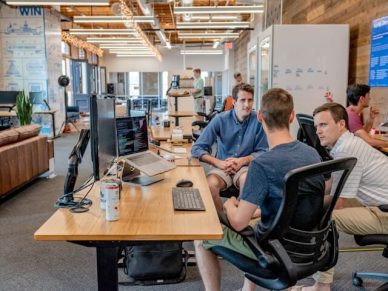
How the Hospitality Sector Leverages Tech in Staffing Solutions
Advances in HR tech are changing how hospitality enterprises meet their staffing demands. Machine learning, cloud computing, artificial intelligence and mobile apps are some technologies revolutionizing the scene. This article explores what these technological advances mean for the sector.
Streamlining the Hiring Process
Sourcing the right people for different roles is fundamental in generating revenue. Whether it’s a hotel, restaurant or tourism service provider, a business must recruit professionals who match their responsibilities. Various HR tools available today have dramatically changed hospitality staffing. Pre-assessment hiring systems enable recruiters to evaluate candidates thoroughly without spending too much time on the process. Applicant tracking systems/software (ATS) allow HR experts to search for suitable candidates without human bias. The platform can be customized to find specific applicants. If a hotel can hire the right employee the first time, then it avoids wasting money on repeated recruitment cycles. Streamlining recruitment decreases the chances of integrating the wrong people into a company’s workforce. A business that taps into the best prospects for certain positions enjoys a high employee retention rate.
Improving Productivity through Automation
A big trend in hospitality is automating mundane tasks. Some of the daily responsibilities workers have to carry out are repetitive. They can eat up considerable time and effort. Check-ins, event bookings and other front-of-house duties are examples. Repetitive tasks can interfere with service delivery. Automation helps with this. AI and robotics are the technologies fueling automation in the hospitality industry. Some enterprises use robots for cleaning, concierge and room service. Robotics remain a big investment for businesses. However, their cost is decreasing with time, enabling various companies to afford them.
AI is presently the most invaluable technology for anyone in hospitality. It automates a wide range of tasks, from social media marketing to customer service. Chatbots enable restaurants, hotels and other entities to attend to customers around the clock. Facial and voice recognition systems help identify guests, thereby simplifying check-ins. Automating mundane duties leaves employees with sufficient time to incorporate a personal touch to consumers where necessary. Additionally, businesses save money by decreasing the number of workers needed for repetitive jobs.
Enhancing Employee Retention
Any successful hospitality business depends on its workers. A satisfied workforce delivers high-quality services. However, many companies have trouble retaining their staff. Various technologies are designed to boost employee engagement and retention. Digital platforms allow enterprises to get feedback from workers. Learning the weaknesses and strengths in a workforce makes it easy to fix what’s needed. Businesses can reward deserving workers with the help of employee recognition systems. Using predictive analytics, a business can glean insights into staff behavior and patterns. A hotel or restaurant can then capitalize on this information to boost employee satisfaction and earn their loyalty.
The Use of Freelancers
Outsourcing some roles is how a majority of hospitality businesses thrive. Not every employee has to be permanent, which is where freelancers come in. The gig economy allows the industry to reduce operational costs by hiring some professionals on a short-term basis. Experts in various fields, such as digital marketing, event planning and graphic design, sell their services on a freelance basis. Therefore, interested parties can easily find the right candidates for specific responsibilities. Employers can leverage digital tools to allocate tasks, manage projects and communicate with freelancers. With proper management, remote workers can complement existing teams.
Conclusion
The hospitality industry reaps numerous benefits from digital transformation. Shifting consumer trends, rising costs of operation and labor shortages are common challenges in the sector. Various technological innovations, including AI, cloud computing and robotics provide modern solutions. Businesses can recruit suitable workers, automate repetitive tasks and enhance service delivery by leveraging the latest staffing technologies.
















Leave a Reply